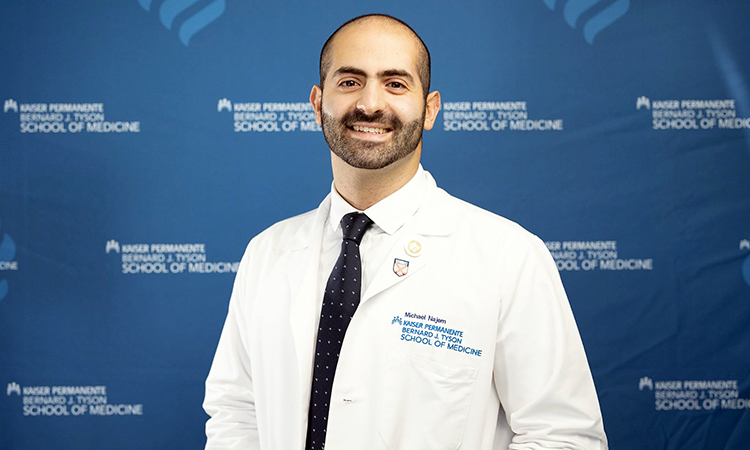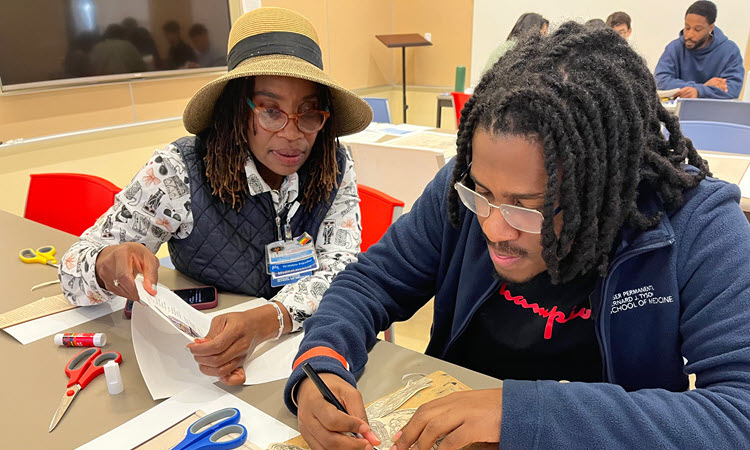For Michael Najem, the opportunity to conduct epidemiological research for the first time, and to present that research via a highly respected consortium on global health issues, came with a deep personal connection.
Najem, a second-year KSPOM student, is co-author of an academic poster presentation titled Systematic Review of Breast Cancer Epidemiology in Lebanon,” which was presented during the Consortium of Universities for Global Health 13th Annual Conference, held virtually from March 28 to April 1. Najem collaborated on the project with several colleagues: medical students Jude Alawa from Stanford School of Medicine and Evan Cao from Yale University School of Medicine, as well as PhD candidate Dan Bromberg and Associate Professor Kaveh Khoshnood, both from the Yale School of Public Health.
Their study represents the first systematic review of literature on the epidemiology of breast cancer in Lebanon, a developing Middle Eastern country where the disease is rising among women, and where disease management is complicated by a lack of access to affordable prevention resources, screening services, and treatment options, Najem noted.
“My parents immigrated to the United States from Lebanon in the 1970s, fleeing war,” Najem said. “I grew up with my Lebanese heritage as a central part of my identity, and it remains at the core of who I am today. As I’ve begun to understand and appreciate how my career as a physician might branch out into roles in healthcare administration, public health, and global health (especially with involvement in Lebanon), I’ve realized that I need to begin understanding the health challenges facing the Lebanese people.
“This project represents the first step I am taking to work toward this understanding, which I can then build upon to eventually work toward systems-level change for better health outcomes in Lebanon later in my career.”
The researchers reviewed over 80 pieces of primary literature published between 1990 and 2021 and assessed each for quality of evidence, extracting salient findings. Available data was “heterogeneous,” describing different regions and populations in Lebanon over several time periods, often using different scales and normalization techniques, Najem said.
The researchers noted a general increase in breast cancer incidence over time evidenced in several studies. Notably, the Global Burden of Disease Study of 2019 estimated an incidence of 122.5 breast cancer cases per 100,000 in Lebanon, the highest among 49 Asian countries analyzed in that study. Furthermore, it reported an estimated 165 percent increase in age-standardized incidence between 1990 and 2019, Najem said.
“[The research] highlights the need for high quality, country-wide epidemiological research that identifies gaps in prevention, screening, and treatment of breast cancer in Lebanon,” he added.



